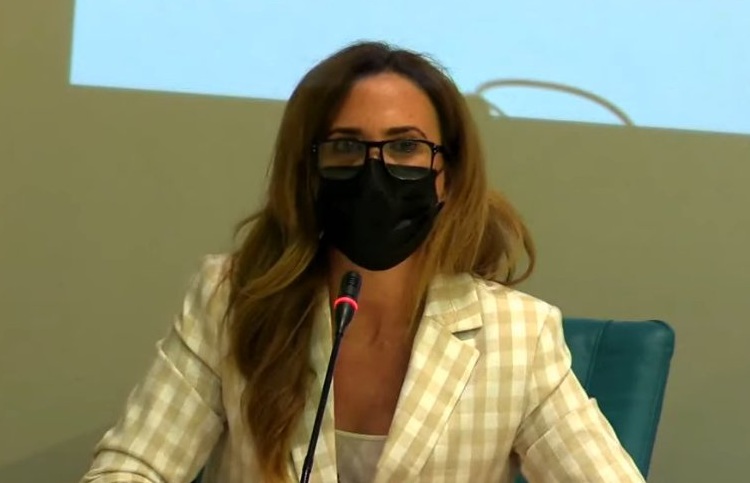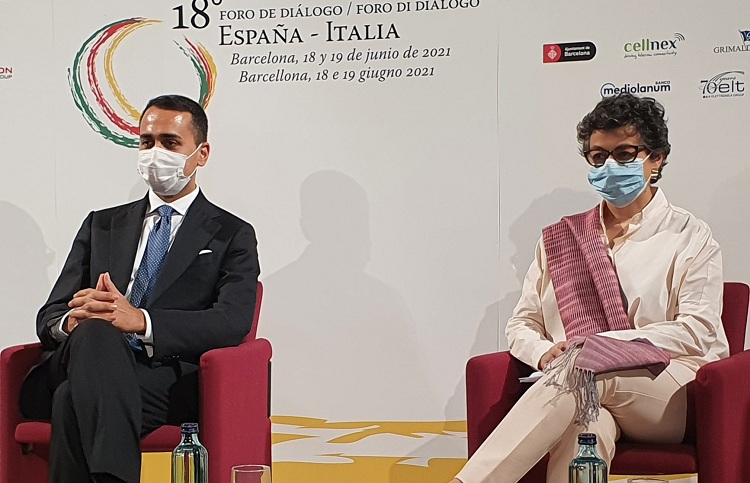The Diplomat
The Spanish Commission for Refugee Aid (CEAR) has assured that Spain again “let down” refugees in 2020, “approving only one out of every 20 asylum applications”, and has warned that the new EU Pact on Migration and Asylum does not offer “solutions based on a shared solidarity with the countries of southern Europe” and reduces that solidarity to an “à la carte menu” beneficial to the “northern states of the Union”.
These are the main conclusions of the Annual Report 2021. Refugees in Spain and Europe, which was presented this past Friday by CEAR at Casa Árabe’s headquarters in Madrid and which deals with the main migration and asylum issues that took place last year, such as the outbreak of the pandemic, the increase in arrivals to the Canary Islands, the obstacles in the reception or the new global and European pacts.
According to CEAR, “Spain once again failed refugees last year, approving only one in 20 asylum applications, far from the average recognition rate of 33% of European Union countries”. “At the same time,” the organization continues, Spain “granted residence authorization for humanitarian reasons to nearly 41,000 people, almost all of them from Venezuela.”
The document also regrets the “scant recognition” granted by Spain to victims of persecution by non-state agents (gangs, criminal gangs, etc.). “It is necessary to advance in their protection and eliminate obstacles so that people from countries in conflict such as Syria, Yemen or Palestine can come safely due to the requirement of a transit visa,” said the director of CEAR, Estrella Galán.
Despite the decrease in arrivals through Ceuta and Melilla, CEAR denounced that, throughout the year, there were at least 212 “hot returns”, a practice that, it recalled, has been questioned by the European Court of Human Rights in Strasbourg and by the Spanish Constitutional Court for considering that it does not meet the legal guarantees, “requirements that, both in these cases and in the most recent ones in Ceuta, were not carried out”.
The report also points out that the pandemic has increased the restrictions of movement, “leaving thousands of people trapped in unsafe countries“, so “it is more urgent than ever that Spain activates legal and safe ways such as resettlement, humanitarian visas, asylum requests at embassies and consular representations and facilitating family reunification”, claimed Galán.
Regarding the humanitarian crisis experienced in the Canary Islands, with the arrival of more than 23,000 people in 2020, CEAR considers necessary to apply “migration policies with a different perspective, planned and coordinated, not only focused on the shielding of borders, including a system of transfers to the peninsula agile, transparent and without discrimination by nationality, with a solidarity distribution throughout the Spanish territory, avoiding turning the island and peripheral territories in large areas of retention, and modify the protocols for the care of minors.
The European Pact on Migration and Asylum
The document points out that, “for yet another year, the Mediterranean migratory route was once again the deadliest in the world, with at least 1,417 people killed trying to reach Europe, although due to the pandemic and strong border controls, migrant arrivals were reduced to less than 100,000 during the year”. Likewise, “asylum applications in the European Union as a whole fell again” in 2020, “and were mainly concentrated in Germany, France and Spain, while the recognition rate remained stable and on average one in three requests were approved.”
Finally, CEAR warns in its report that the new EU Pact on Migration and Asylum is a continuation of the policy “based on returns, reinforcing the role of Frontex”, and imposes “the responsibility of reception to the first country of entry, without offering solutions based on a solidarity shared with the countries of southern Europe (Spain, Italy, Greece and Malta)”. “By not defining a mandatory sharing mechanism, the supposed system of solidarity between countries remains an à la carte menu that allows the northern states of the Union to turn the Mediterranean countries into the parapet of arrivals and arrivals, with a voluntary and non-binding involvement,” lamented Galán. “It is therefore a new missed opportunity for the EU to show its commitment to the protection of refugees in a balanced and fair way”, she concluded.







